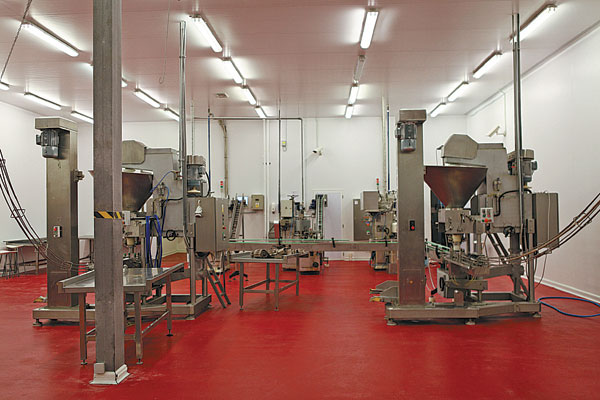 |
|
Maling's factory in the Czech Republic. The brand has a long history in the country. [Photo provided to China Daily] |
However, other Eastern European countries, such as Poland and Hungary, proved tougher markets to crack, the former already having its own quality brands, and the latter importing much of its canned meat from Romania, Heng says.
"In the Czech Republic and Slovakia, the quality of local competitors' meat is a lot lower than ours, so it is easier to win customers," he adds.
Heng says that in his business, quality counts, and his company's products use locally sourced meat, whereas some other rivals may use other often-discarded parts of the animal.
"In Europe, food safety standards are very high, but that does not necessarily mean the meat source is great. We use the best meat available and you can taste the difference."
When Maling first decided to invest in the Czech factory in 2005, it had expected that meat prices in China would rise, but not nearly as high as they did.
With Czech prices remaining comparatively low, it meant its locally produced products proved competitive in many Southeast Asian markets too, including Singapore, Malaysia, the Philippines and Indonesia.
With slightly different packaging, the Czech-produced Maling meat became branded as "premium", while its China manufactured meat was aimed at the average pocket.
A series of food safety issues in China hurt domestic sales of a number of goods, but Maling's products were seen as safe, given they were produced abroad and met strict European food safety standards.
A twist to its success story in Europe was that some Czech rivals started creating products in similarly designed packaging, even in some cases using names such as Meiling or Haiming.
Maling's products have distinctive orange and blue labels on its cans, but Heng says: "Consumers can be easily confused because the cans look so similar.
"Some of these copycat brands would also put Chinese characters onto their cans to make consumers think the products are made in China, which is seen locally as a sign of high quality."
Heng says the problem, essentially intellectual property infringement, dates back to the 1960s and 1970s when the State-owned China National Cereals, Oils and Foodstuffs Corporation, the country's largest food processor, manufacturer and trader, was also in charge of managing the international operations of many other companies, including Maling.
When China later privatized many of its State-owned firms in its reform and opening-up process, the IP of many brands was given back to them, but Maling's identity in international markets was never returned.
During the 1990s many Czech canned meat producers registered their own IP, with designs similar to Maling, but the corporation failed to intervene on its behalf as it was unfamiliar with the significance of IP registration, Heng says, meaning the Czech brands were legally branded, a situation that is now almost impossible to rectify.
So Heng's only solution has been to try to educate customers about the difference between its own products and those of others, and to highlight its quality, not only in the ingredients used, but also in its production processes.
